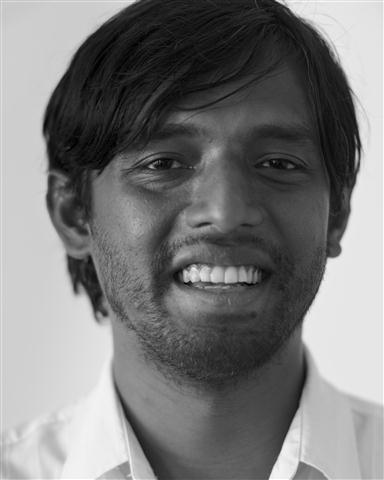ERC Starting Grant (2015-2018)
Domestic Servants in Colonial South Asia
The ubiquity of domestic service and servants in contemporary South Asia has strangely received scarce historical attention. Although quantitative sources under-represent the number of domestic servants dramatically, it is clear that they were the third largest sector in Indian working population during the nineteenth century.
This project centrally situates servants at the intersection of households, labour and forms of relationships. Primarily within the household but also outside, everyday relationships between servants and masters were based upon labour and wage on the one hand and intimacy and affect on the other. The master’s dependence and the servant’s submission was not fixed and frozen in time but was performed in everyday encounters in various types of households. The aim is to understand the role of servants and service relationship in class and status formation.
Servants’ history was located in households but was never limited to them. Servants’ history needs to move beyond the employer’s household into the realm of ghettoes, streets, bazaars, barracks, hospitals and mission houses. It was part of the broader history of political economy, formation of labour market and legal regulations, changing forms of domesticity of both European and native types, and not least, of nationalism and international migration. By locating servants in the wider social and political world, the project combines empirically grounded case-studies with analyses of political economy of imperialism and brings this to develop a new understanding of labour, gender and social histories.
To do so, two research units cover two overlapping but distinct periods of modern South Asian history: one, the period from early eighteenth to mid-nineteenth; second, from mid-nineteenth to twentieth century.
This ERC funded three year project (2015-18) was led by Nitin Sinha as the principal investigator, who is based at Zentrum Moderner Orient, Berlin with Nitin Varma, a postdoctoral candidate based at Re:Work, Humboldt University, Berlin.
Dr. Nitin Sinha
ERC Starting Grant, Berlin, Deutschland
Domestic Labour in Colonial India
Nitin Sinha ist Geschichtswissenschaftler für Südasien der Moderne und arbeitet insbesondere zu den Themen Arbeit, Geschichte des Transport- und Kommunikationswesens sowie zur Agrarökologie unter der britischen Kolonialherrschaft vom späten 18. bis zum 20. Jahrhundert. Zu seinen Forschungsgebieten gehören Städtebaugeschichte und Arbeitsgeschichte, die Geschichte des Reisens und der Kartographie sowie die Sozial- und Kulturgeschichte anhand gedruckter Hindi-Texte und Bildmaterialien.
Im Jahr 2012 erhielt Dr. Sinha einen Lehrauftrag an der University of York. Zuvor hatte er eine Post-Doktoranden-Stelle am Zentrum Moderner Orient in Berlin. Dort ist er seit 2015 als Senior Research Fellow tätig. Im akademischen Jahr 2013/14 war Dr. Sinha Fellow am Kolleg.
Gemeinsam mit einigen jüngeren Kollegen gründete Dr. Sinha in Berlin im Jahr 2010 das Young South Asia Scholars Meet (Y-SASM, http://y-sasm.blogspot.com/), eine Plattform zur Verbesserung des akademischen Austausches unter Doktoranden und Postdoktoranden, die zum Thema Südasien arbeiten.
Literatur (Auswahl)
“‘Opinion’ and ‘Violence’. Whiteness, Empire and State-Formation in Colonial India“. South Asia Chronicle 4/2014 (2015): 322–51.
“Fluvial Landscape and the State. Property and the Gangetic Diaras in Colonial India, 1790s-1890s“. Environment and History 20, Nr. 2 (2014): 209–37.
“Contract, Work, and Resistance. Boatmen in Early Colonial Eastern India, 1760s–1850s“. International Review of Social History 59, Nr. S22 (2014): 11–43.
Communication and Colonialism in Eastern India. Bihar, 1760s-1880s. London: Anthem Press, 2012.
“Continuity and Change. The Eighteenth Century and Indian Historiography“. South Asia Chronicle 2 (2012): 416–40.
“Entering the Black Hole. Between ‘Mini-England’ and ‘Smell-Like Rotten Potato’, the Railway Workshop Town of Jamalpur, 1860s–1940s“. South Asian History and Culture 3, Nr. 3 (2012): 317–47.
“Protest and Mobilization. Aspects of Workers’ Resistance and Control“. In Labour Matters. Towards Global Histories. Studies in Honour of Sabyasachi Bhattacharya, herausgegeben von Marcel van der Linden und Prabhu P. Mohapatra. Tulika Books, 2009.
“Mobility, Control and Criminality in Early Colonial India, 1760s-1850s“. Indian Economic & Social History Review 45, Nr. 1 (2008): 1–33.
“The World of Workers’ Politics. Some Issues of Railway Workers in Colonial India, 1918–1922“. Modern Asian Studies 42, Nr. 5 (2008): 999–1033.
-
Zuletzt aktualisiert: 19. April 2016
Dr. Nitin Varma
ERC Starting Grant, Berlin, Deutschland
Domestic Labour in Colonial India
Telefon: +49 (0)30 2093 702 18
Telefax: +49 (0)30 2093 702 10
nitin.varma(at)asa.hu-berlin.de
studierte Geschichte an der University of Delhi und der Jawaharlal Nehru University (Delhi). Im Jahr 2011 beendete er seine Dissertation an der Humboldt-Universität zu Berlin über die Arbeit der Kulis auf den Teeplantagen in Assam während der Kolonialzeit. „Kuli“ ist ein Sammelbegriff für „ungelernte“ Arbeitskräfte in Südasien. Im 19. Jahrhundert versuchte man den Begriff durch diskursive Konstruktion und materielle Praxis als "mobilisierte-immobilisierte“ Arbeit in Bergwerken, Plantagen und anderen kapitalistischen Unternehmen der Kolonialzeit neu zu definieren. Die Arbeit der Kulis galt oftmals als bewusster Kompromiss für die Zeit des Übergangs aus der vergangenen Ordnung (Sklavenarbeit) in die Zukunft (freie Arbeit). In seiner Dissertation liefert er Argumente dafür, dass die Kulis als Arbeitskräfte im geschichtlichen Kontext der kolonialen kapitalistischen Plantagen in Assam erst „geschaffen“ wurden. Die Ergebnisse seiner Untersuchung legen nahe, dass die Kräfte des Kolonialkapitalismus keine freie Hand bei der Definition und „Produktion“ der Kulis hatten; daher widmet er sich besonders den zugehörigen Eventualitäten, Verhandlungsprozessen, Auseinandersetzungen und Krisen. Hierdurch bricht er mit dem jähen Auftreten der archetypischen Figur des Kulis der Teeplantagen (z.B. durch Einreise und Vertragsknechtschaft) und rückt das Auftreten, die Versorgung und Verschiebungen dieses Archetypus in den Kontext materieller und diskursiver Prozesse.
Bei re:work arbeitet er an einem Projekt über Ayahs (Hausangestellte, Kindermädchen) während und nach der Kolonialzeit in Indien und darüber hinaus. Ayahs und Laskaren bildeten eine frühe professionelle Gruppe mobiler Arbeitskräfte, die vom späten 18. Jahrhundert an mit den britischen Familien reisten. Die Bedeutung von Ayahas in Großbritannien lässt sich an der Einrichtung von Institutionen wie ayah’s home mit Beginn des 20. Jahrhunderts messen.
Ziel des Projektes ist es, den häufig vernachlässigten Hausangestellten und ihren Arbeiten mehr Beachtung zu schenken und gleichfalls die Möglichkeiten und Grenzen transregionaler Netzwerke, Verbindungen und Geschichten auszuwerten. Die Beschäftigung von Ayahs war nicht auf britische Familien in Indien, Afrika oder England beschränkt, sondern wurde ein wichtiges Merkmal indischer Mittelstandsfamilien im späten 19. und im 20. Jahrhundert. Nitin Varma bemüht sich in seiner Untersuchung anhand verschiedener Fragestellungen darum, sowohl die lokalen als auch die translokalen Gepflogenheiten der Hausarbeit aus der Perspektive der Ayahs zu beleuchten: Auf welchem Wege wurden Ayahs angestellt? Wie stand es um ihr Beschäftigungsverhältnis und ihre Arbeitsbedingungen? War die Anstellung als Ayah ein Lebensabschnitt oder verbrachten sie den Rest ihres Lebens in der Familie ihrer Arbeitgeber? Wie veränderten sich die Gepflogenheiten in der Entwicklung von Zeit und Raum?
Literatur
Coolies of Capitalism. Assam Tea and the Making of Coolie Labour. Berlin: De Gruyter Oldenbourg, 2016.
„Unpopular Assam. Notions of Migrating and Working for Tea Gardens“. In Towards a New History of Work, herausgegeben von Sabyasachi Bhattacharya, 227–44. New Delhi: Tulika Books, 2014.
„Coolie Strikes Back. Collective Protest and Action in the Colonial Tea Plantations of Assam, 1880–1920“. In Adivasis in Colonial India. Survival, Resistance, and Negotiation, herausgegeben von Biswamoy Pati, 186–215. New Delhi: Indian Council of Historical Research, 2010.
„For the Drink of the Nation. Drink, Labour and Plantation Colonialism in the Colonial Tea Gardens of Assam in the Late Nineteenth and Early Twentieth Century“. In Labour Matters. Towards Global Histories. Studies in Honour of Sabyasachi Bhattacharya, herausgegeben von Marcel van der Linden und Prabhu P. Mohapatra, 295–318. New Delhi: Tulika Books, 2009.
„Chargola Exodus and Collective Action in the Colonial Tea Plantations of Assam“. Sephis [= Special Issue on Labour in Memory of Late Rajnarayan Chandavarkar] 3, Nr. 2 (2007).
„Coolie Acts and the Acting Coolies. Coolie, Planter and State in the Late Nineteenth and Early Twentieth Century Colonial Tea Plantations of Assam“. Social Scientist 33, Nr. 5/6 (2005): 49–72.
Zuletzt aktualisiert: 12. Dezember 2016


